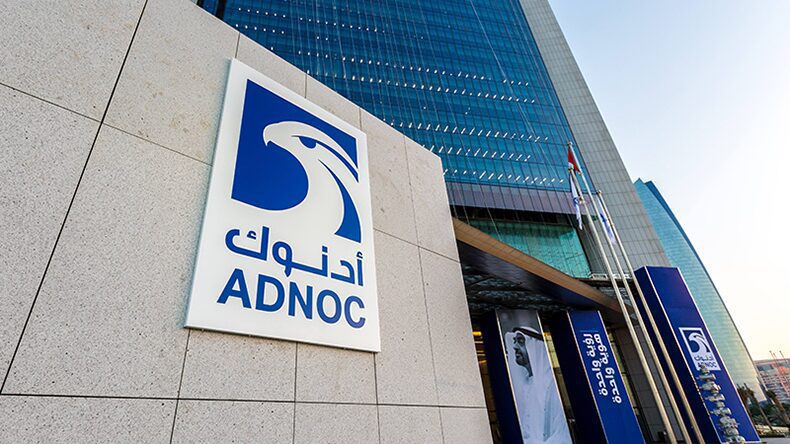ADNOC Group has fast-tracked its decarbonisation strategy, advancing its net zero carbon emissions goal by five years to 2045 and targeting zero methane emissions by 2030.
H.H. Sheikh Khaled bin Mohamed bin Zayed, Crown Prince of Abu Dhabi and Chairman of the Abu Dhabi Executive Council, endorsed the company’s decarbonisation plan, calling it a pivotal step in ADNOC’s transition towards a more sustainable future.
The ambitious emissions target makes ADNOC the first among its peers to accelerate its net zero aim to 2045. The company’s carbon intensity was already among the lowest globally, at around 7 kilograms of carbon dioxide equivalent per barrel of oil equivalent in 2022.
Earlier, ADNOC had revealed plans to reduce greenhouse gas emission intensity by 25% and enhance carbon capture, utilization, and storage capacity by 500% by 2030. However, they now aim to achieve a 25% carbon intensity reduction by 2030, according to Gulf Business.
Significant Investment in Decarbonisation Initiatives
The energy firm’s decarbonisation plan encompasses Scope 1 and Scope 2 emissions, which measure direct carbon dioxide emissions from its own operations and from energy consumption. ADNOC’s tougher climate targets align with the UAE’s updated national climate pledge under the Paris Agreement, aiming to cut emissions by 40% by 2030. ADNOC is a crucial enabler of the country’s revised target.
The company also plans to drive global renewable energy and green hydrogen growth through its shareholding in Masdar, targeting over 100 GW of renewable capacity and one million tonnes of green hydrogen production by 2030.
ADNOC’s decarbonisation plan includes a groundbreaking $3.8B project to link offshore operations to clean grid power, significantly reducing the offshore carbon footprint. To accelerate key decarbonisation initiatives, ADNOC allocated $15B, including investments in carbon capture and storage, electrification, energy efficiency, and nature-based solutions.
The company is building a low-carbon ammonia production facility with an annual capacity of one million tonnes to support its customers’ decarbonisation efforts.
Additionally, ADNOC launched two pilot projects for carbon capture, aiming to expand its carbon capture capacity to five million tonnes per annum by 2030.


